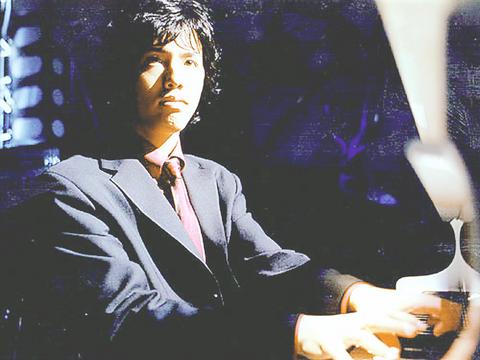Ask any astute Taiwanese observer of the local classical music scene why all the tickets are sold for Yundi Li's Taipei concert on Sunday and you will get the reply: "Because he's Chinese."
Yundi Li, still only 20, rocketed to the attention of audiences and CD buyers in Europe and Asia following his sensational winning of Warsaw's Chopin Competition, the first time its top prize had been awarded to anyone in 15 years. His first CD Yundi Li: Chopin sold exceptionally well, and has been followed by Yundi Li: Liszt and two others, one issued in Japan. And he has still to make his debut, live or on disc, in the US.
The fact that he's Chinese may influence some ticket-buyers, overjoyed to see someone of his ethnicity beat the foreigners at what could be perceived as their own game. Nevertheless, there have been many before him, and in every department of classical virtuosity. This week alone has seen several such in Taipei for Lin Cho-liang's International Music Festival, but the loudest applause at last Monday's concert was for Gil Shaham and Lynn Harrell, notably non-Chinese musical stars.

PHOTO COURTESY OF MNA
Another element in Yundi Li's phenomenal success may be his youthful good looks, plus the way these have been used by Deutsche Grammophon in promoting his recordings.
Nevertheless, the heart of the matter is that Yundi Li is an outstanding artist in his own right. His Liszt CD is brilliant in every way, combining the utmost delicacy with total interpretative authority and, where necessary, power. All the indications are that here is a major international pianist, supremely talented by any standards, with a long career ahead of him.
His three Taiwan concerts will feature Chopin's four Scherzos, followed by the arduous Sonata in B Minor of Liszt which opens his Yundi Li: Liszt CD.
This is a rather uncompromising program, to put it mildly. Chopin's scherzos (he only wrote these four) are not like what most listeners will expect from this composer. And the Liszt sonata is bravura stuff, but hardly familiar to non-specialists.
Yundi Li, in other words, is making no allowances for popular taste, but instead assaulting some very difficult music head-on. There can be little doubt, however, that there will be encore items at the end, and these are likely to be of more familiar material.
Sunday's concert in Taipei is sold out, but tickets from NT$800 to NT$1,500 were available for Tuesday's concert in Kaohsiung and Thursday's in Taichung as of press time.
Yundi Li will perform at the National Concert Hall, Taipei on Sunday at 7.45pm; at Chihte Hall, Kaohsiung, 25 March, 7.30pm, and at Chunghsing Hall, Taichung, 27 March, 7.30pm. Tickets are available through ERA ticketing.

This is the year that the demographic crisis will begin to impact people’s lives. This will create pressures on treatment and hiring of foreigners. Regardless of whatever technological breakthroughs happen, the real value will come from digesting and productively applying existing technologies in new and creative ways. INTRODUCING BASIC SERVICES BREAKDOWNS At some point soon, we will begin to witness a breakdown in basic services. Initially, it will be limited and sporadic, but the frequency and newsworthiness of the incidents will only continue to accelerate dramatically in the coming years. Here in central Taiwan, many basic services are severely understaffed, and

Jan. 5 to Jan. 11 Of the more than 3,000km of sugar railway that once criss-crossed central and southern Taiwan, just 16.1km remain in operation today. By the time Dafydd Fell began photographing the network in earnest in 1994, it was already well past its heyday. The system had been significantly cut back, leaving behind abandoned stations, rusting rolling stock and crumbling facilities. This reduction continued during the five years of his documentation, adding urgency to his task. As passenger services had already ceased by then, Fell had to wait for the sugarcane harvest season each year, which typically ran from

It is a soulful folk song, filled with feeling and history: A love-stricken young man tells God about his hopes and dreams of happiness. Generations of Uighurs, the Turkic ethnic minority in China’s Xinjiang region, have played it at parties and weddings. But today, if they download it, play it or share it online, they risk ending up in prison. Besh pede, a popular Uighur folk ballad, is among dozens of Uighur-language songs that have been deemed “problematic” by Xinjiang authorities, according to a recording of a meeting held by police and other local officials in the historic city of Kashgar in

It’s a good thing that 2025 is over. Yes, I fully expect we will look back on the year with nostalgia, once we have experienced this year and 2027. Traditionally at New Years much discourse is devoted to discussing what happened the previous year. Let’s have a look at what didn’t happen. Many bad things did not happen. The People’s Republic of China (PRC) did not attack Taiwan. We didn’t have a massive, destructive earthquake or drought. We didn’t have a major human pandemic. No widespread unemployment or other destructive social events. Nothing serious was done about Taiwan’s swelling birth rate catastrophe.